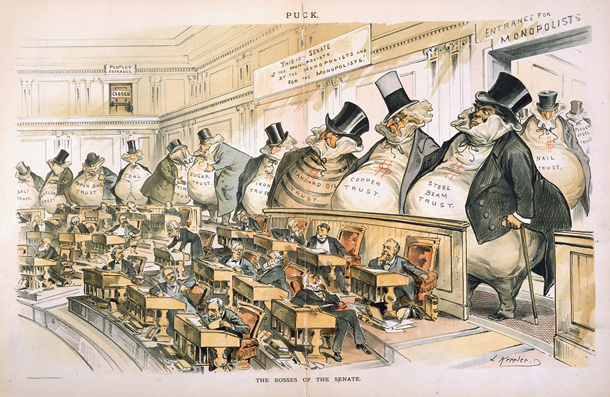This is a great time to be a crook. Not a small-time crook of course — for example, a cat-burglar or a pickpocket, or someone who fiddles his expenses: these knaves invariably get caught and spend time in the slammer. I’m talking about bankers, ‘defence’ contractors, executives of ‘security’ companies (the kind that charge the taxpayer for electronic tagging of people who are deceased or in prison, for example), and the like. They are not only doing just fine, but are apparently untouchable. As Charles Simic explains in a lovely NYRB blog post:
What makes a career in white-collar crime so attractive is that there are so few risks anymore. Everyone knows about Wall Street bankers having their losses from various scams they concocted over the years covered by taxpayers. But now, even when bankers lose billions for their bank by making bad or reckless deals, or have to pay regulatory penalties, as Jamie Dimon, the current chairman, president, and chief executive officer of JPMorgan Chase did earlier this year, they are more likely to get a 74 percent raise, as he did, than to lose their jobs. As for the federal agencies that are supposed to watch over them and the Justice Department that is supposed to haul these hucksters into court, if they so much as bestir themselves to confront the banks, they simply ask them to pay fines, thereby avoiding a judge or a jury and making sure that the details of their swindles can remain secret from the public.
As dishonest as Wall Street is, it doesn’t compare to the kind of thievery that went on in Iraq and Afghanistan. Once upon a time, war profiteers were looked at as the lowest of the low and condemned by presidents. “Worse than traitors in arms are the men who pretend loyalty to the flag, feast and fatten on the misfortunes of the Nation while patriotic blood is crimsoning the plains of the South and their countrymen mouldering in the dust,” warned Abraham Lincoln during the Civil War. “I don’t want to see a single war millionaire created in the United States as a result of this world disaster,” declared Franklin Roosevelt as the United States entered World War II.
Yet today, according to the Commission on Wartime Contracting, an independent, bipartisan legislative commission established to study wartime contracting, somewhere between $31 billion and $60 billion of US government money has been lost through contract waste and fraud in Iraq and Afghanistan. It is now common knowledge that contractors were paid millions of dollars for projects that were never built, that the Defense Department gave more than $400 billion to companies that had previously been sanctioned in cases involving fraud, and that the beneficiaries of such past largesse have not only gotten fabulously wealthy, but continue to be invited to pursue lucrative business opportunities in the new homeland security–industrial complex.

